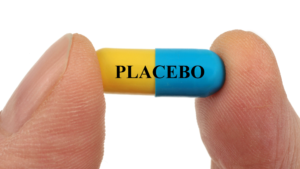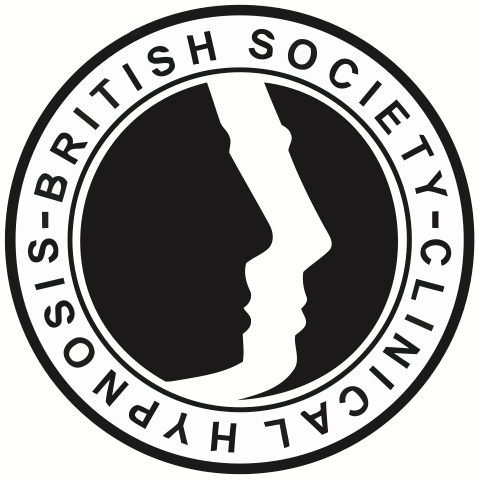Mind-body medicine uses the power of thoughts and emotions to influence physical health. Hippocrates wrote; “The natural healing force within each one of us is the greatest force in getting well.”
A placebo (Latin placebo meaning “I shall please”) is anything that seems to be a real medical treatment … only it isn’t. A remarkable phenomenon in which fake treatment, an inactive substance like sugar, distilled water or a saline solution can improve a patient’s condition simply because the person has the expectation that it will help.

It could be a pill, an injection, or any other type of fake treatment. However, more recently, not only have placebos proved highly effective in treating pain, depression and even alleviating some of the symptoms of Parkinson’s disease, a radiologist from the Mayo Clinic designed a trial which involved fake operations.
In his trial Dr Kallmes would give some patients a genuine operation (vertebroplasty – cement injected into fractured or damaged bone) and some would be given a placebo.
But in this case the placebo wasn’t a dummy pill, it was a dummy operation.
None of the 130 patients / participants on the trial knew whether they were having the real thing or the placebo so this meant that Dr Kallmes had to develop an elaborate ploy to ensure that patients wouldn’t work out which group they were in.
All patients were prepared for their operation in the same way. They were wheeled into theatre, given a local anaesthetic in their back and it was only at that stage that it was decided whether or not they would have the placebo operation or the genuine vertebroplasty.
Half the patients then received the real operation while the other half ‘believed’ they had the operation.
You may or may not be surprised to learn that regardless of receiving genuine vertebroplasty or the placebo operation, patients recovered and improved in equal measure.
The placebo effect is real, it works about 18-80% of the time, and it’s not just in the mind! The effect of receiving a placebo dilates bronchi (the main passageway into the lungs) heals ulcers, makes warts disappear, reduces blood pressure, and can even make men who think they’re getting a hair growth treatment grow hair!
And that’s the good side.
But the placebo effect has a dark side too.

The same mind-body power that can heal you can also harm you and this is known as nocebo (Latin nocebo meaning “I shall harm”)
The nocebo effect is when a negative expectation of a phenomenon causes it to have a more negative effect than it otherwise would
When patients in double-blinded clinical trials are warned about the side effects they may experience if they’re given the real drug, approximately 25% experience severe side effects, even when they’re only taking sugar pills.
Those treated with nothing more than placebos often report fatigue, vomiting, muscle weakness, colds, ringing in the ears, taste disturbances, memory disturbances, and other symptoms that shouldn’t result from a sugar pill.
And nocebo complaints aren’t random. The mere suggestion that a patient might experience negative symptoms in response to a medication (or a sugar pill) may be a self-fulfilling prophecy.
For example, if a patient is told that by being treated with a placebo they might experience nausea, they are likely to feel nauseous. If it is suggested they might get a headache, they may well get a headache.
In one study a group of patients were given a saline solution and told they would be receiving chemotherapy, despite the fact they received just salt water, 30 per cent of the patients lost their hair.
In another study, patients about to undergo surgery who were “convinced” of their impending death were compared to another group of patients who were merely “unusually apprehensive” about death. While the apprehensive bunch fared pretty well, those who were convinced they were going to die usually did.
Similarly, women who believed they were prone to heart disease were four times more likely to die. It’s not because these women had poorer diets, higher blood pressure, higher cholesterol, or stronger family histories than the women who didn’t get heart disease. The only difference between the two groups was their beliefs.
The nocebo effect is probably most obvious in the context of “voodoo” or curse.
When a person is cursed and told they will die, they very often oblige.
The idea of voodoo death doesn’t just apply to witch doctors. Literature shows that patients believed to be terminally ill and who are mistakenly informed that they have only a few months to live have died within their given time frame, even when autopsy findings reveal no physiological explanation for the early death.
And then there is something known as “Medical Hexing”.
When a doctor tells a patient that they have an incurable illness or that they will be on medication for the rest of their lives or that they have a 5% five year survival, they’re essentially cursing the patient with a form of “medical hexing.” Doctors think that you deserve to know, that you should be realistic and make arrangements if necessary. But when they say such things, they instil in your conscious and subconscious mind a belief that you won’t get well, and as long as the mind holds this negative belief, it becomes a self-fulfilling prophecy. If you believe you’ll never recover, you won’t.
So what does this say about the power of the mind and mind body medicine? What does this say about the power of positive and negative self-talk and the power of belief?
Perhaps it’s as simple as Henry Ford once said: “If you think you can do a thing or think you can’t do a thing, you’re right.”
Find out more about mind body medicine, Clinical Hypnotherapy and how it can help you physically as well as psychologically, click here









1 thought on “Mind-Body Medicine”
There are many people studying pain science who are providing wonderful evidence-based education and treatments that harness the power of the brain (central nervous system) in healing. Absolutely fascinating and so needed especially in the area of chronic pain! Check out the International Spine and Pain Institute (ISPI), Lorimer Mosley in Australia, Beth Darnell, Ph.D. at Stanford (pain catastrophizing), the Curable app, Dr. David Hanscom (former spine surgeon now treating pain non-surgically), the Pain Reframed podcast -and so many others – advocating a biopsychosocial (and spiritual added for many) model for the treatment of pain. The brain is being found to be extremely powerful in both creating and dialing down pain, both acute and chronic forms of pain. Some are even providing young children with “pain neuroscience education” and studies are showing significant, measurable changes in how the kids who received the education have lower pain levels, less visits to the doctor, and even less illness, afterwards. Of course we must remember about the placebo effect (net-bossorg/the-power-of-the-placebo-effect-by-randy-baker) but with proper approach, this also migh be beneficious.